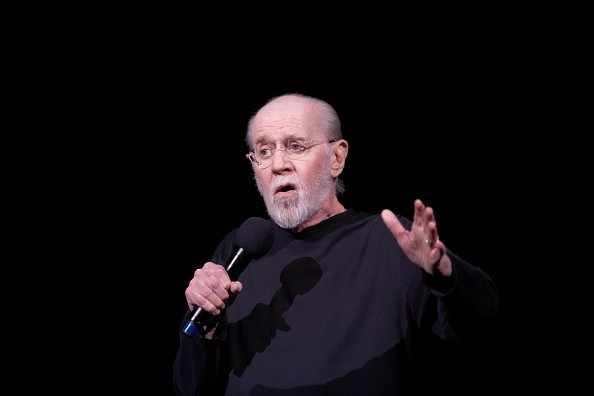The estate of George Carlin has filed a lawsuit against a media company that used artificial intelligence to create an hour-long comedy special that replicated Carlin's signature style, delivery, and subject matter.

The lawsuit was filed in a Los Angeles federal court on Thursday and asks a judge to order Dudesy, the podcast outlet, to immediately take down the "special," which is titled "George Carlin: I'm Glad I'm Dead."
Carlin died in 2008, but the special has the A.I. version of him discuss modern subject matter that has occurred since his passing. Kelly Carlin, the daughter of the late comedian, issued a statement on the matter.
The plaintiffs are calling it a "poorly executed facsimile cobbled together by unscrupulous individuals to capitalize on the extraordinary goodwill my father established with his adoring fanbase."
Carlin's estate, and executor Jerold Hamza, are plaintiffs in the suit, which alleges violations of Carlin's right of publicity and copyright. Dudesy, and podcast hosts Will Sasso and Chad Kultgen, are named the filing and defendants.
"None of the Defendants had permission to use Carlin's likeness for the AI-generated 'George Carlin Special,' nor did they have a license to use any of the late comedian's copyrighted materials," the lawsuit says.
The defendants have not filed a response to the lawsuit. The company also released a podcast episode with Sasso and Kultgen introducing and commenting on the artificial Carlin.
"What we just listened to, was that passable?" Kultgen says in a section of the episode cited in the lawsuit."Yeah, that sounded exactly like George Carlin," Sasso responds.
This lawsuit is among the first of its kind and will likely lead to increased legal moves being made to fight the regenerative aspect of artificial intelligence using the likeness of deceased entertainers to create new content without the permission of their estate or any living relatives.
Attorney Josh Schiller, who filed for the plaintiffs, said in a statement that the "case is not just about AI, it's about the humans that use AI to violate the law, infringe on intellectual property rights, and flout common decency."
© 2025 HNGN, All rights reserved. Do not reproduce without permission.








